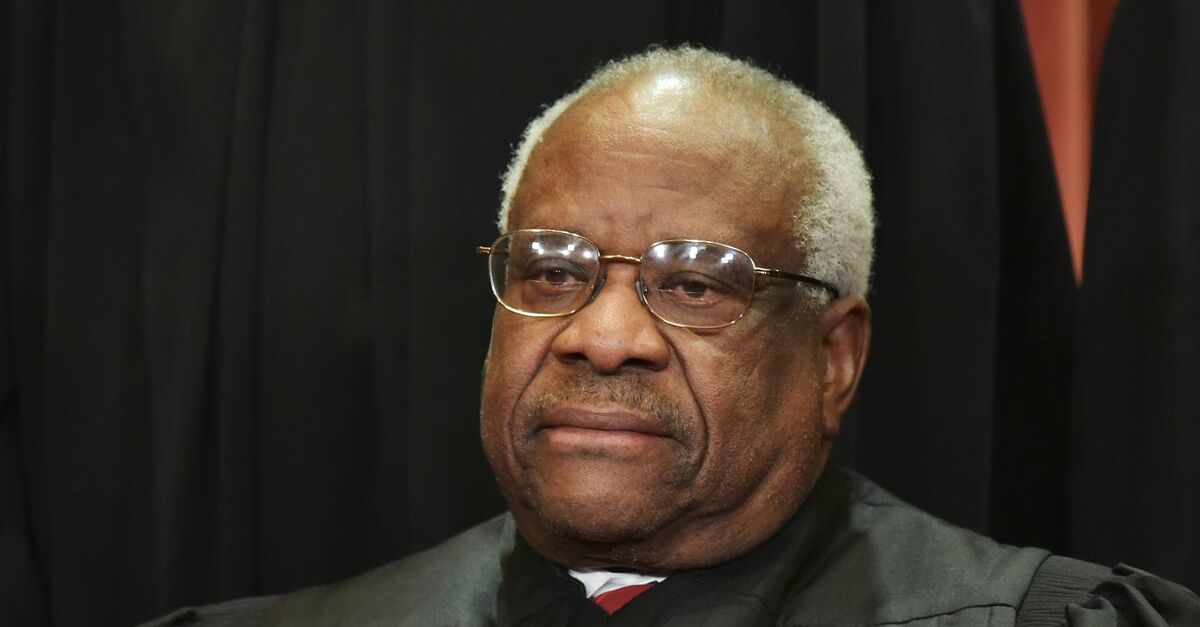
Most people probably aren’t all that interested in the legal question of whether you can have a protectable trademark for a generic term if a dot com is tacked on to the end of that term. Supreme Court Justice Clarence Thomas is not one of those people.
Justice Thomas, who is widely known to have gone a decade without asking a question from the bench in the past, kicked off the first ever live streamed oral arguments by asking a couple of questions on Monday.
The issue in Patent & Trademark v. Booking.com B.V. (and some background):
Whether, when the Lanham Act states generic terms may not be registered as trademarks, the addition by an online business of a generic top-level domain (“.com”) to an otherwise generic term can create a protectable trademark.
Here was what Justice Thomas wanted to know.
“A couple of questions,” Thomas began, “Could Booking acquire an 800 number that’s a vanity number — 1-800-BOOKING, for example — that is similar to 1-800-PLUMBING, which is a registered mark?”
“So, Justice Thomas, under the federal circuit’s decisions, yes, it could. Those decisions I think — may — are sort of debatable under Goodyear and the that principles we think control here, but the federal circuit — the PTO rather — does follow those decisions because of the right of direct appeal to the federal circuit from PTO decisions,” Assistant to U.S. Solicitor General Erica Ross answered. “The core problem with Booking.com is that it allows respondent to monopolize ‘booking’ on the internet because of the fact that longer domain names of respondent’s competitors like ebooking.com and hotelbooking.com can include booking.com. That is not as obviously true of something like 1-800-BOOKING.”
“Well, that could be true,” Thomas answered. “I’d like you to compare this to Goodyear.”
“In Goodyear you had a generic term, but you also had added a term such as company or inc. which any company could use. Now, with Booking, there could only be one domain address dot com. So this would seem to be more analogous to the 1-800 numbers which are also individualized,” he reasoned.
Ross said that the Thomas was “completely correct that only one internet entity at a time can hold the domain rights to booking.com,” but that nonetheless said that this worked in favor of the Patent & Trademark Office’s argument. Ross argued this case creates “exactly the type of anti-competitive concern” raised in Goodyear.
“If you allow one company to have Booking, Inc. or Booking Company it’s going to preclude others from calling their goods by their names and from marketing their goods as they are,” Ross said.
Justice Thomas was conspicuous by his presence.
Justice Clarence Thomas has asked a question during the Supreme Court’s first telephonic arguments. It’s been a year since he last asked a question. Here’s a story from when it last happened: https://t.co/gyZwn6J7yb
— AP Courtside Seat (@AP_Courtside) May 4, 2020
https://twitter.com/KimberlyEAtkins/status/1257311003508789248?s=20
[Image via Mandel Ngahn/AFP via Getty Images]